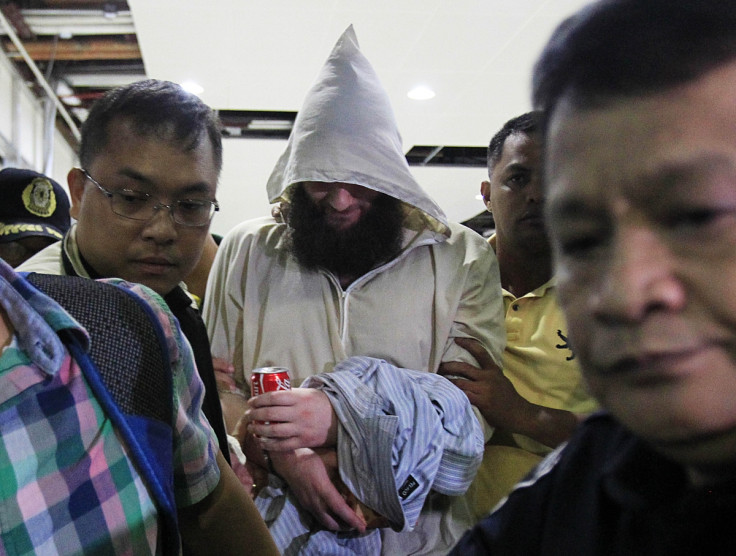Australian Isis Preacher Arrested in Philippines Used 'Street Cred' to Spread Jihad

An Australian described as one of the world's three most influential online jihadist preachers has been arrested in the Philippines.
Melbourne-born Robert Cerantonio, who goes by the alias Musa, was arrested yesterday in Lapu-Lapu, in the centre of the country, then flown to the capital Manila, where he is awaiting deportation, said Australian police.
He was arrested along with a Filipino man and woman, who were carrying a stack of different currencies, SIM cards, mobile phones, and Cerantonio's passport.
"He has been literally calling for jihad," a senior police intelligence official told Reuters. "He has been recruiting Filipino Muslims to fight in Iraq and Syria."
Professor Greg Barton, director of the Global Terrorism Research Centre at Monash University, told ABC that Cerantonio's "street cred" had allowed him to build a huge online following.
"For his audience, he's seen as a very hip, cool representative of their generation - somebody just like them: a 20-something male, only more knowledgeable - greatly more knowledgeable - and more confident," he said.
"He's not seen as an uncle or as an older figure, as an older religious teacher. He's seen as somebody of the generation he's reaching out to. And that gives him street cred that's very, very important.
Cerantonio had 12,000 Facebook followers before his account was closed down.
Prior to his arrest, Cerantino had taunted law enforcement authorities on social media.
"Have fun finding me. I'll be waiting for you or whichever dogs you send," he wrote on Facebook.
He had previously claimed that he had fled to the Middle East, out of the reach of authorities.
While in the Philippines, Cerantonio is believed by police to have visited Mindanao and Davao City, where Islamist millitants are believed to be based, and delivered lectures supporting jihadist group Isis.
Experts said that a growing number of Filipinos were being drawn to militant Islamist groups, who were unifying as the Black Flag movement.
"The so-called Black Flag movement is very active in the Philippines … [and] seems to be the unifying factor among violent extremist groups operating in the Philippines. Isis's use of the Black Flag resonates strongly in the Philippines," wrote Rommell Banlaoi, head of the Centre for Intellegence National Security Studies (CINSS) of the Philippine Institute for Peace, Violence and Terrorism Research on Rappler.com.
In Australia, Isis is a designated terrorist group, and those who knowingly associate with a member or facilitate its actions face up to 25 years in jail.
© Copyright IBTimes 2025. All rights reserved.






















